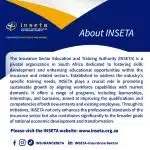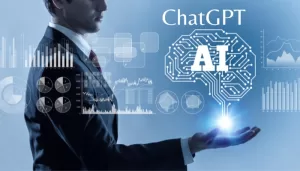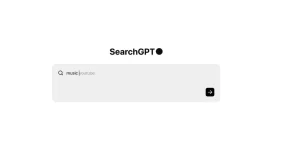The Hidden Risk: Why Relying Too Much on AI Can Backfire

- There is a warning from Altman, the CEO of OpenAI, to refrain from using ChatGPT for significant life decisions.
- On the global stage, experts have issued warnings about dangers linked to the overuse of AI tools.
A Warning from Sam Altman on ChatGPT Use
In an interview first reported in Business Insider, Sam Altman, CEO of OpenAI, expressed concern about reliance on ChatGPT for major life decisions. His concern comes from the simple truth — tools powered by AI, such as ChatGPT, are there to assist human judgement, not to consider themselves as substitutes when the human dilemma is very personal and life-altering.
Global Adoption and AI Life Decisions
Across the world, AI has found its way into deeply personal spaces. It was observed in 2024 by Ipsos that 34% of the global respondents had interacted with AI for a kind of personal advice. The figures soar beyond half among 18-29-year-olds. The trend is creating ripples in decision-making from London to Singapore and New York to Nairobi, having a bearing on how an individual, a family, or even a business might consider their choices.
Why Experts Warn About AI Decision-Making
Experts say the problem is not that ChatGPT or other AI provides information — it’s that people sometimes take this information as the final answer. AI works by detecting patterns in existing data. It has no sense of emotional nuance or lived experience. A model can suggest which industry is growing, but it can’t measure your resilience for career shifts. It can show historical investment trends, but it can’t account for sudden market disruptions. It can summarise medical studies, but it cannot diagnose your unique health condition.
Common Global Use Cases for AI
- Career choices: In India, fresh graduates consult ChatGPT for job selection; in the US, mid-career professionals explore remote work options. In Europe, job seekers use AI to tailor CVs and cover letters to applicant tracking systems. In Japan, AI is being used to explore second careers for retirees.
- Financial planning: Users in Europe and South America seek AI-based investment guidance. In parts of Africa, small business owners ask AI for budgeting tips. In Southeast Asia, AI models savings plans for education goals. In the Middle East, entrepreneurs explore AI tools for market entry strategies.
- Health queries: From Asia to the Middle East, people turn to AI for explanations of symptoms and treatments. In North America, fitness enthusiasts use AI to create training and diet plans. In Latin America, patients use AI to understand medical terminology before consulting a doctor.
The Risks of Blind Trust in AI Tools
The risk begins when ChatGPT’s or other AI’s suggestions are followed without validation. You may:
- Miss critical context or recent updates.
- Overlook emotional or interpersonal factors.
- Damage trust in AI technology and the brands behind it.
Why Brand Trust Matters in AI Adoption
For global brands, trust in AI services is critical. In international surveys, over 70% of executives cite brand trust as a primary driver for adopting AI. A single poor user experience can cause long-term reputational harm, especially in competitive markets where switching to a rival service is easy.
Best Practices for Safer ChatGPT and AI Use
Industry experts recommend practical steps:
- Use ChatGPT for initial research, then consult human experts.
- Compare AI responses across different platforms.
- Keep decision-making authority with people, not machines.
Healthy AI habits can make a difference:
- Verify information before acting.
- Treat AI as one perspective, not the authority.
- Keep your decision-making process human-led.
Governance and AI Ethics Worldwide
Governments worldwide — from the European Union to Singapore, Canada, and Australia — are discussing AI governance frameworks to guide safe usage. The United Nations has hosted multi-country discussions about aligning AI use with human rights. In Africa, regional blocs explore collaborative AI ethics policies. In South America, cross-border data sharing rules are being debated to improve AI transparency.
How Global Brands Adapt AI Strategies
In the business world, multinational companies are rethinking how they integrate ChatGPT and other AI into customer-facing services. Some people put disclaimers on outputs generated by AI. In other words, hybrid models are introduced whereby the AI provides data, but trained personnel provide the final recommendations. Case studies of retail and banking brands show improvement in satisfaction scores when recommendations from AI are followed up by humans. In the hospitality sector, some hotels in Asia and Europe combine AI-powered concierge services with personal guest relations to preserve that human touch level.
AI in Education and Healthcare
In education, universities from Australia to the US debate AI’s role in student support. Some use AI to help with research summaries but require faculty review before submission. In healthcare, hospitals in Europe experiment with AI-assisted diagnostics but maintain physician approval as the final step. In public health, NGOs in Africa and Asia use AI to analyse disease trends but rely on local medical teams for response planning.
A Balanced Global Approach to AI Life Decisions
For common people all over the world, the road ahead lies in balance. ChatGPT and other artificial intelligence systems will never outthink the speed of a human mind, but they will never truly understand your values, goals, or lived experiences. The most important decisions in your life cannot be handed to an algorithm while you are left out of the decision-making process. They need you.
Sam Altman gives an apt and timeless reminder: Technology will inform you, but it will never replace you. Whether one is in London or Lagos, Los Angeles or Lima, the truth remains the same: Your biggest life decisions are your responsibility, and that is how it should be.












































